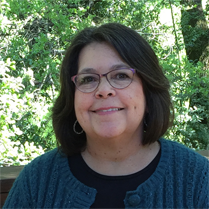Early Intervention for the Developmentally Disabled
 Parents know their children better than anyone. The first three years are very important in a child’s life. If parents are concerned about their child’s development, it is best to identify the concern as soon as possible. Families who have infants or toddlers with developmental delay or disabilities, may qualify for early intervention services provided by the Early Start program.
Parents know their children better than anyone. The first three years are very important in a child’s life. If parents are concerned about their child’s development, it is best to identify the concern as soon as possible. Families who have infants or toddlers with developmental delay or disabilities, may qualify for early intervention services provided by the Early Start program.
California’s Early Start Program provides early intervention services to infants and toddlers with disabilities and to their families. Families may access the program through one of California’s Regional Centers for developmental disabilities, County Offices of Education, or local school districts.
Are you concerned about your child’s development?
If you have concerns about your infant or toddler’s development, discuss them with your child’s doctor. The doctor may recommend that you call the local regional center or special education program at either the school district or the county office of education. You may also contact these agencies directly.
Next Steps
When you contact a regional center or school district, a representative of the agency will provide additional information about services and, if appropriate, make arrangements to have your child assessed. Your child may qualify for confidential special services. You may also receive information about local Early Start Family Resource Centers and Family Empowerment Centers on Disability. These services provide parent-to-parent support, resource materials, and other information useful to families.
Eligibility
Children who are eligible include infants or toddlers (birth through 36 months) who:
- have a significant delay in at least one area of development,
- have a condition with a known probability of causing a disability or delay,
- have severe vision, hearing, or orthopedic conditions, or
- are at “high risk” of experiencing developmental delays or disabilities due to a combination of risk factors.
Early intervention services support the well-being of young children ages birth-3 years old. A child’s development is assessed in each of these five areas:
- ability to move, see, and hear (physical)
- ability to think and learn (cognitive)
- ability to understand, talk, express self (language and speech)
- ability to relate to others (social and emotional)
- ability to eat, dress and to care for or help self (adaptive)
Services
When a child is eligible, families and professionals work together as partners to plan and deliver quality Early intervention services and support. The regional center coordinates community services based on the child’s needs and the preferences of each family.
Early Start services are provided in “natural environments”, such as the home and community settings where children without disabilities may participate. Evaluations, assessments, and most services are provided at no cost to the family. Private insurance, when available, must be used for medical services or therapies.
At age 3, children who have been served by Early Start move to a different system. They may continue to receive services through a special education preschool program and through Lanterman regional center services. If no longer needed, they may graduate out of specialized services.
Last month I wrote about accessing services for school-aged children with developmental disabilities. If children can be identified prior to beginning school, services will already be in place at the time educational decisions need to be made. That will make for a smoother transition into school for the child with developmental disabilities.
My best to you during this time of Thanksgiving.
With love and affection,
Rosemarie
Copyright (c) 2018 by GenParenting

Rosemarie Pérez has worked with English learners and their families in public education for more than twenty years. She has served as a bilingual teacher, professional developer, and district administrator. Administrative roles included serving as the Director of English Learners for an elementary school district and as a Coordinator of Reading and Language for the San Mateo County Office of Education. Rosemarie continues to work with families as she leads the Santa Clara County Office of Education’s Parent Engagement Initiative during the past three years. Ms. Pérez provides expert guidance to teachers, school site staff, and school administrators in creating culturally sensitive parent training modules and academic curricular units. She facilitates parent education and Common Core Standards workshops. Engaged parents are further trained to become parent leaders and advocates. Rosemarie is the mother of five adult children and three grandchildren.

